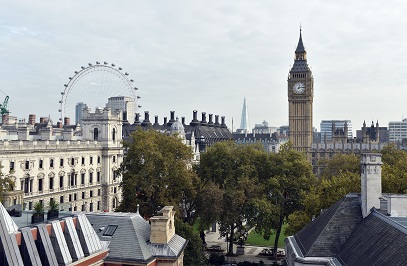
Continuing with manifesto week, today we see the Lib Dem’s publish their manifesto.
Lib Dem leader Tim Farron uses the manifesto to make the case that, given everyone knows the Conservatives will win this general election, the Lib Dems offer is to be a strong opposition which can hold a Conservative government to account in place of Labour.
Yesterday we published a summary of what Labour’s manifesto had to say on industrial strategy, defence and Brexit. Here we take a look at what the Lib Dem’s have to say:
Industrial Strategy
The Lib Dems would continue to build on the Coalition’s industrial strategy, working with sectors which are critical to Britain’s ability to trade internationally.
They pledge to:
- Continue to raise the science budget in line with inflation, with the goal of doubling innovation and research spending across the economy.
- More ‘Catapult’ innovation and technology centres.
- Aim to double the number of SMEs participating in the digital economy.
- Invest in the future by supporting innovative technologies – including the Space industry.
- Increase number and quality of apprenticeships, with aim to double the number of businesses which hire apprentices.
- Expand higher vocational training to tackle the skills gap.
- Ensure that the receipts from the Apprenticeship Levy in England are spent on training.
- Develop a national skills strategy for key sectors.
- Reverse the cutting of Corporation Tax.
- Review business rates.
- Support to medium-sized businesses through a one-stop-shop for accessing government support, a dedicated unit in HMRC and the development of management skills.
- Expand British Business Bank, tackling the shortage of equity capital for growing firms and providing long-term capital for medium-sized businesses.
- Support fast-growing businesses seeking to scale up through mentoring support.
- Extend transparency requirements for larger companies to including publishing the number of people paid less than the living wage and the ratio between top and median pay.
- Require major banks to fund the creation of local banking sector dedicated to meeting the needs of local SMEs.
Defence
The Lib Dems commit to spending 2% of GDP on defence and would:
- Invest in security and intelligence services and act to counter cyberattacks.
- Build on the framework for defence co-operation to promote European defence integration where appropriate by enhancing European defence industry co-operation.
- Implement a policy of ‘presumption of denial’ for arms exports to countries listed as countries of concern in the Foreign Office’s annual human rights report and require end-user certification on all future arms export licenses with an annual report to Parliament on this certification.
On Trident, they would maintain a minimum nuclear deterrent and procure three boats instead of four and move to a medium-readiness responsive posture:
Step down the nuclear ladder by procuring fewer Vanguard successor submarines and moving from continuous at sea deterrence to a contingency posture of regular patrols, enabling a surge to armed patrols when the international security context makes this appropriate.
Brexit
- A referendum on the Brexit deal, with the option of staying in the EU on the ballot paper.
- Fighting a hard Brexit – including retaining membership of the single marker and customs union, freedom of movement, and Europol membership.





